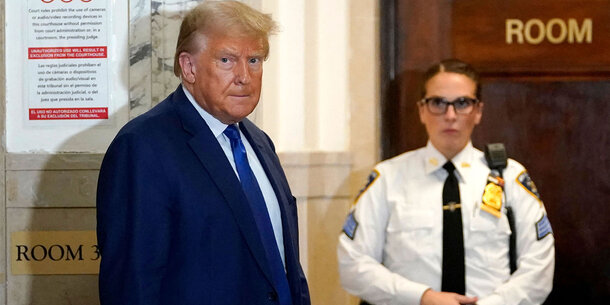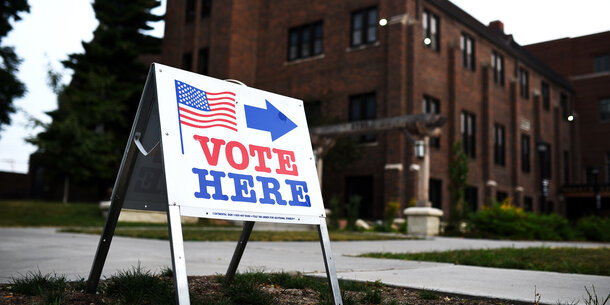Florida’s voter eligibility requirements for people with past felony convictions are incredibly complicated. But there’s no way would-be voters with such convictions could know any of that if they’re just looking at Florida’s uniform statewide voter registration application. It’s an unacceptable omission that has had, and continues to have, dire consequences for Floridians across the state — and it violates federal law. So, the Brennan Center and our co-counsel are bringing a lawsuit on behalf of civic engagement groups to force the state to fix it.
In Florida, the eligibility requirements for people with felony convictions can vary depending on the offense, sentence, and court of conviction. And because it also depends on the payment of certain court debts, determining eligibility can require a detailed review of sentencing and payment records.
It should come as no surprise, then, that some people are misled by the application and register to vote even though they’re not eligible. The results can be tragic, as the state of Florida has begun prosecuting people in this situation for felony voter fraud. Last year, Gov Ron DeSantis (R) announced charges against 20 people, claiming they willfully registered or voted while ineligible despite the fact that they were apparently confused or misled about their eligibility. Some had even been told by a government official that they were allowed to vote.
This means that organizations that conduct voter registration drives, like the League of Women Voters of Florida and the Florida State Conference of Branches and Youth Units of the NAACP, have to worry that when they hand someone a voter registration application, they could be putting them at risk of future prosecution.
That’s why the Brennan Center is representing both the League of Women Voters of Florida and Florida NAACP in a lawsuit demanding that Florida fix its application. We’ve teamed up with co-counsel at the American Civil Liberties Union, ACLU of Florida, Legal Defense Fund, and the law firm O’Melveny & Myers.
Our suit argues that the lack of information on Florida’s voter registration application violates the National Voter Registration Act, also known as the Motor Voter Act. The 1993 federal law, enacted to ensure all eligible Americans can register to vote and participate in federal elections, requires states to “inform applicants . . . of . . . voter eligibility requirements.” It also requires states’ mail-in voter registration forms to specify “each eligibility requirement.” Yet Florida’s voter registration application simply says, “If you have been convicted of a felony . . . you cannot register until your right to vote has been restored.” It also requires applicants to check a box that reads, “I affirm that I am not a convicted felon, or if I am, my right to vote has been restored.”
In January, we sent a letter to Secretary of State Cord Byrd demanding that he bring Florida’s voter registration application into compliance with the National Voter Registration Act. As required by that law, we gave the state 90 days to fix its voter registration application before we filed our lawsuit, but it chose to do nothing.
The state’s inaction is consistent with its long history of making it hard or impossible for people with past convictions to vote. Before 2018, nearly one out of every four people disenfranchised in the United States lived in Florida. And because of bias in the state’s criminal legal system, one out of every five Black adults in the state could not vote.
In November 2018, Floridians changed that by adopting Amendment 4, a state constitutional amendment that automatically restored the right to vote for most Floridians with felony convictions, except those convicted of murder or a felony sex offense, who had completed the terms of their sentence.
The amendment was expected to restore voting rights to as many as 1.4 million Floridians. But on the heels of its passage, the Florida Legislature and governor limited the reach of this historic re-enfranchisement. They adopted a law requiring that certain court debts be paid before the right to vote is restored. This pay-to-vote requirement disqualified hundreds of thousands of people who owe court debts they can’t afford to pay.
The state adopted this antidemocratic system knowing there is no centralized database where potential voters can learn whether they even owe disqualifying court debts. At the same time, Florida has enacted laws that make it more difficult for nonpartisan civic engagement organizations like the League of Women Voters of Florida and Florida NAACP to register eligible voters with past convictions. And of course it has started upending the lives of dozens of Floridians with past convictions, arresting and prosecuting them for registering and voting while ineligible – even though they believed in good faith that they could vote.
Florida has a lot of work to do to fix its voting rights restoration system. But given its complex voter eligibility requirements and the incredibly high stakes for making an honest mistake, the least it can do is fix its voter registration application. In fact, federal law requires it.






